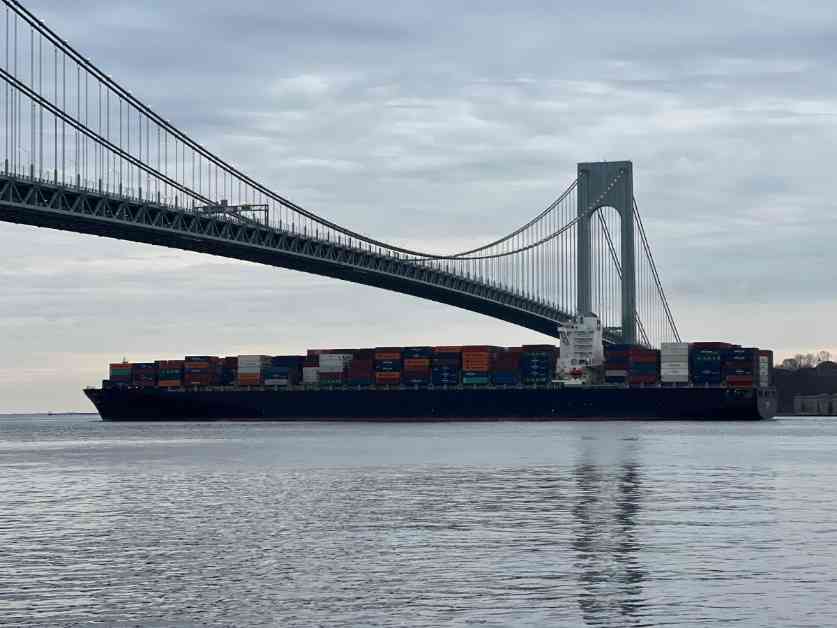Port Workers in New York Area Threaten Strike Amid Eastern US Labor Dispute
The Port of New York and New Jersey, along with other ports on the East Coast, face the threat of a potential standstill this week as the union representing tens of thousands of longshoremen is at a deadlock in contract negotiations with a consortium of shipping companies.
The International Longshoremen’s Association (ILA) has issued a warning that they will go on strike at ports across the East Coast and Gulf Coast if a new contract agreement is not reached by midnight on Tuesday with the United States Maritime Alliance, a group comprised of ocean shipping carriers and port operators.
The main points of contention in the negotiations are the demand for higher wages and safeguards against the automation of their jobs by the ILA.
Potential Impact on Operations
If a resolution is not reached, all cargo operations at the Port Authority’s facilities in New York City and New Jersey are set to come to a halt. Starting from Monday, September 30, new cargo will no longer be accepted for export at the port, and shippers will be unable to retrieve imported goods. The last freight trains are scheduled to depart from the port on Monday unless a contract agreement is finalized.
Bethann Rooney, the Port Authority’s port director, emphasized the imminent shutdown at the agency’s recent board meeting, stating, “All activity in the Port of New York and New Jersey related to containerized cargo and automobile cargo will cease if there is no intervention.”
To mitigate the potential disruptions, the Port Authority has advised shippers to expedite their operations before the shutdown. The agency anticipates a surge in activity this month, although specific traffic numbers for September were not immediately available.
Economic Impact and Implications
A strike at the Port of New York and New Jersey could have significant repercussions on commerce in the region and across the nation. The Port Authority estimates that approximately $240 billion worth of goods pass through its ports annually, supporting around 600,000 jobs in the surrounding areas.
If the strike materializes, New Yorkers may experience shortages of goods and face higher prices due to the disruption in supply chains. The ripple effects could be felt by businesses and consumers alike, impacting a wide range of industries that rely on the efficient functioning of the ports for their operations.
The potential loss of revenue and productivity resulting from a prolonged strike could have long-lasting effects on the economy, highlighting the critical role that port workers play in facilitating trade and transportation.
As the deadline for negotiations approaches, there is growing concern among stakeholders about the potential consequences of a labor dispute. The uncertainty surrounding the outcome of the talks has left many businesses and workers in limbo, unsure of how to proceed in the face of a potential shutdown.
Efforts to avert the strike are underway, with both the ILA and the United States Maritime Alliance engaged in discussions to find common ground. The outcome of these negotiations could have far-reaching implications for the future of labor relations in the shipping industry and the broader economy.
In conclusion, the looming threat of a strike at the Port of New York and New Jersey underscores the complex dynamics at play in the labor dispute between the ILA and the United States Maritime Alliance. The outcome of these negotiations will not only impact the immediate operations at the ports but also have broader implications for the economy and the livelihoods of workers in the region. As stakeholders continue to navigate the uncertainties surrounding the negotiations, the need for a swift and amicable resolution becomes increasingly urgent to avoid disruptions that could have lasting effects on the economy.

